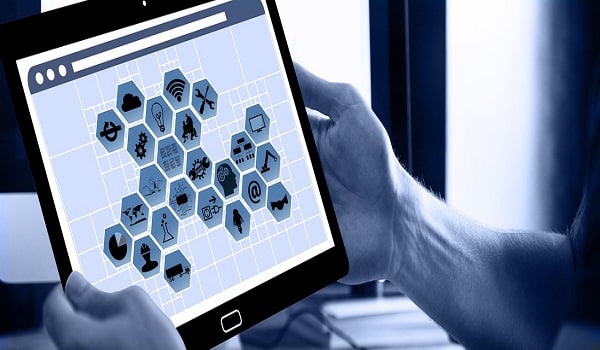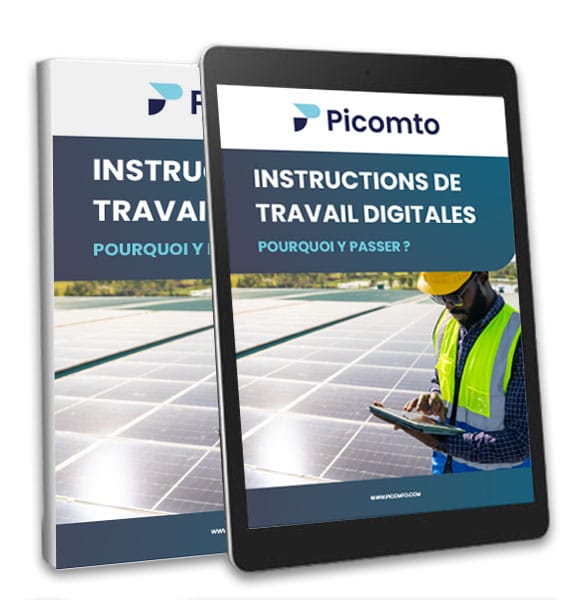How can you transform your traditional maintenance approach into a high-performing digital strategy that reduces costs and improves productivity? This question concerns many industrial managers today facing growing operational efficiency challenges. Discover how Picomto revolutionizes maintenance intervention planning with its innovative digital solutions.
Indeed, industrial maintenance is undergoing a profound transformation. Consequently, companies must rethink their methods to remain competitive. On one hand, organizational challenges are intensifying with the increasing complexity of equipment. On the other hand, digital solutions now offer unprecedented optimization opportunities.
This transformation proves crucial for maintaining industrial performance. Thus, we will explore together the modern strategies and tools that are revolutionizing maintenance management.

Key points to remember regarding maintenance intervention planning:
- Essential digitalization: The transition to digital maintenance management tools significantly improves efficiency
- Strategic planning: A continuous improvement approach requires structured maintenance planning methods
- Breakdown prevention: Systematic preventive maintenance considerably reduces the risks of major breakdowns
- Field mobility: Mobile applications for intervention management optimize technicians’ productivity
- Performance monitoring: Evaluation of maintenance performance allows continuous optimization of maintenance costs
Need guidance?
Contact our experts for an audit of your maintenance processes and discover how to optimize your organization.
1. Why digitalize maintenance intervention planning?
The digitalization of maintenance intervention planning addresses modern industry challenges. In particular, it optimizes resources while improving operation traceability.
Notably, this approach fundamentally transforms how technical teams collaborate and intervene in the field.
1.1. What are the main challenges of traditional maintenance?
Traditional methods present several critical limitations:
- Manual schedule management: Intervention prioritization errors increase costs
- Fragmented communication: Communication between maintenance teams remains ineffective
- Lack of traceability: Maintenance operation history remains incomplete
- Limited reactivity: Emergency maintenance management proves problematic
Moreover, these challenges directly impact industrial productivity. Indeed, intervention delays can lead to costly production stoppages.
1.2. How does digitalization improve operational efficiency?
Digital transformation brings measurable benefits:
- Automated optimization: Maintenance scheduling optimization algorithms improve resource allocation
- Information centralization: A unique maintenance information system facilitates decisions
- Real-time: Real-time feedback from technicians accelerates interventions
- Mobility: Mobile access to procedures optimizes maintenance intervention efficiency
Thus, these improvements translate into a significant reduction in downtime.
1.3. What are the concrete advantages of connected maintenance?
Connected maintenance offers tangible advantages:
- Cost reduction: savings on maintenance budgets
- Safety improvement: Strict compliance with safety standards and regulations
- Increased productivity: Optimization of technician routing
- Predictability: Conditional and predictive interventions reduce unexpected breakdowns
2. How to implement an effective digital maintenance strategy?
Implementing digital maintenance intervention planning requires a methodical approach. First, it is appropriate to analyze the existing situation to identify priority improvement areas. Then, defining a clear roadmap ensures the success of the transformation.
2.1. What are the key steps to digitalize your maintenance procedures?
What are the steps to effectively plan maintenance interventions?
- Initial audit: Evaluation of existing processes and identification of needs
- Objective definition: Establishment of an optimized maintenance forecast calendar
- Tool selection: Choice of Computerized Maintenance Management System (CMMS) software
- Team training: Change management and skills development
- Progressive deployment: Phased implementation with intervention monitoring and evaluation
These steps ensure a smooth transition to digital.
2.2. How to choose the right digital tools for your maintenance?
Tool selection must address your specific needs:
- Essential functionalities: Task planning and integrated resource management
- User interface: Simplicity of use to promote field adoption
- Integration: Compatibility with your existing systems
- Scalability: Capacity to adapt to future needs
Additionally, prioritize solutions offering a proactive maintenance approach.
2.3. How to ensure training and adoption by teams?
Successful adoption requires structured support:
- Personalized training: Adaptation to user profiles
- Continuous support: Available technical assistance
- Communication: Highlighting benefits for each user
- Experience feedback: Consideration of field feedback
3. What are the essential tools for optimal intervention planning?
Modern maintenance management tools transform operational efficiency. First, they centralize information to facilitate decision-making. Second, they offer usage flexibility adapted to field constraints. Finally, they allow complete intervention traceability.

3.1. How to centralize your maintenance procedures on a single platform?
Centralization brings operational coherence:
- Single document base: All operating procedures accessible from a central point
- Automatic versioning: Simplified document revision management
- Access rights: Distribution of maintenance tasks according to authorizations
- Advanced search: Quick location of relevant procedures
This approach guarantees intervention consistency and quality.
3.2. What advantages does mobile consultation of work instructions offer?
Mobility revolutionizes information access:
- Field access: Consultation of procedures directly on-site
- Instant updates: Real-time schedule change notification systems
- Interaction: Possibility to enrich procedures with field feedback
- Traceability: Automatic tracking of consultations and modifications
3.3. How is augmented reality revolutionizing industrial maintenance?
Augmented reality transforms field intervention:
- Visual guidance: Superimposing contextual information on equipment
- Immersive training: Accelerated learning of complex procedures
- Remote assistance: Expert remote support without travel
- Error reduction: Step-by-step guidance for critical interventions
This technology significantly improves efficiency and safety.
4. How to optimize monitoring and analysis of maintenance interventions?
Optimization of maintenance costs requires rigorous performance monitoring. Thus, field data collection and analysis allow identification of improvement areas. Meanwhile, performance indicators guide strategic decisions.
4.1. How to efficiently collect and exploit field data?
Structured data collection is fundamental:
- Automation: Automatic capture of time and consumables
- Standardization: Harmonization of input formats
- Enrichment: Addition of contextual comments and photos
- Consolidation: Data aggregation for analysis
These data then feed statistical analyses of interventions.
4.2. Which indicators to monitor to improve your performance?
Essential KPIs to monitor:
- MTBF (Mean Time Between Failures): Equipment reliability
- MTTR (Mean Time To Repair): Intervention efficiency
- Availability rate: Maintenance impact on production
- Cost per intervention: Budget control
Consequently, these indicators guide intervention team coordination.
4.3. How can remote maintenance reduce your intervention costs?
Remote maintenance optimizes resources:
- Preliminary diagnosis: Problem resolution without travel
- Optimized planning: Efficient preparation of physical interventions
- Continuous training: Skills development of local teams
- Reactivity: Immediate intervention for critical incidents
Conclusion
Digital maintenance intervention planning represents a major strategic issue for industrial companies. Moreover, modern solutions allow significant optimization of operational performance. In particular, the integration of collaborative tools and immersive technologies transforms technical team efficiency.
Finally, adopting a continuous improvement approach with comprehensive digital solutions proves essential for maintaining competitiveness. Therefore, we invite you to discover how Picomto can transform your maintenance approach.
FAQ
How to plan maintenance?
Define priorities, allocate resources, and schedule interventions according to equipment criticality.
What is the maintenance planning process?
Analyze needs, establish calendar, allocate resources, and monitor intervention performance.
What are the 3 stages of planning?
Analysis of existing situation, definition of objectives, implementation of solution.
What are the 3 levels of planning?
Strategic (long-term), tactical (medium-term), operational (short-term).
What are the three main planning strategies?
Preventive, corrective, and predictive maintenance according to equipment needs.
What are the 4 types of maintenance?
Corrective, preventive, conditional, and predictive according to the chosen approach.
What is the first step in planning?
Complete equipment audit and maintenance needs analysis.
How to create a maintenance action plan?
Identify priorities, define resources, establish calendar and monitoring indicators.






Leave A Comment